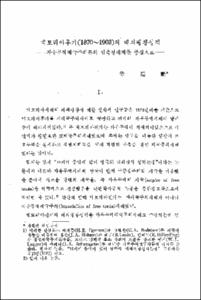언어 습득에서의 규칙과 연습
- Alternative Title
- Rule and Practice in Language Learning
- Abstract
- 언어의 본질과 외국어 습득연구에 관하여 그것이 지니는 의의때문에 어린이의 모국어 습득과정에 관한 연구는 언어학의 주요 관심사가 되어왔다. 그러나 어린이의 모국어 습득에 관하여는 구조주의 경험론과 인지론적인 변형문법 사이에 의견이 일치점이 발견되고 있지 않다.
구조주의 언어학과 행동심리학에 기반을 둔 습관이론은 인간의 언어습득이 근본적으로 모방과 강화에 의한 기계적인 것이며 언어습득에 있어서는 지적분석 보다 무의식적 연습이 더 중요한 것이라고 주장한다.
한편 변형문법과 인지심리학에 기반을 ?? 규칙이론은 언어의 규칙체계를 내재화함으로서 언어가 습득되고 언어습득에서는 무의식적 연습보다 지적분석이 더욱 중요하다고 주장한다.
이러한 두 언어습득 이론의 배경을 철학, 심리학, 언어학의 맥락 속에서 찾아보고 이 두 이론을 결합시켜 하나의 포괄적인 언어 습득이론을 발견할 수 있겠는가 하는 것이 이 논문의 목적이다. 동시에 어린이가 모국어 습득시 사용하는 전략과 현재 외국어 습득시 사용되는 전략사이에 차이가 있음을 알아보고 이 불일치를 오류, 문법발전, 장애, 배열의 관점에서 살펴보았다.
For its relevance to the nature of language and its insights into second language learning, the process of a child's first language acquisition has been a target of deep a target of deep investigation in linguistics, pure and applied. On the theme of how a language is acquired, however, no agreement has yet been reached between the two schools of thought; namely, structuralism with habit formation theory and transformational cognitivists of rule-governed creativity.
Based on structural linguistics and behaviorism in psychology, the habit formation theory interprets human language learning a mechanical process of habit formation through imitation and reinforcement. Placing much emphasis on unconscious practice, it denies the importance of intellectual analysis in human language acquisition. On the other hand, the transformational grammar and gestaltpsychology-oriented code-cognition theory stresses the creative, rule-governed aspects of language learning through internalizing the code of the grammatical rules of a language.
Tracing the origin of these two constroversial ideas of habit-formation and code-cognition back in philosophy, psychology and linguistics, this paper purports to find out the possibility of incorporating these two themes into a single coherent theoretical framework of language acquisition. Additionally, some incongruities are found between the actual phenomena observed from a child's language acquisition process and the views held by the current theories of second language learning. These incongurities have been studied under the topics of error, grammar development, interference and grading.
For its relevance to the nature of language and its insights into second language learning, the process of a child's first language acquisition has been a target of deep a target of deep investigation in linguistics, pure and applied. On the theme of how a language is acquired, however, no agreement has yet been reached between the two schools of thought; namely, structuralism with habit formation theory and transformational cognitivists of rule-governed creativity.
Based on structural linguistics and behaviorism in psychology, the habit formation theory interprets human language learning a mechanical process of habit formation through imitation and reinforcement. Placing much emphasis on unconscious practice, it denies the importance of intellectual analysis in human language acquisition. On the other hand, the transformational grammar and gestaltpsychology-oriented code-cognition theory stresses the creative, rule-governed aspects of language learning through internalizing the code of the grammatical rules of a language.
Tracing the origin of these two constroversial ideas of habit-formation and code-cognition back in philosophy, psychology and linguistics, this paper purports to find out the possibility of incorporating these two themes into a single coherent theoretical framework of language acquisition. Additionally, some incongruities are found between the actual phenomena observed from a child's language acquisition process and the views held by the current theories of second language learning. These incongurities have been studied under the topics of error, grammar development, interference and grading.
- Issued Date
- 1974
- Type
- Research Laboratory
- Alternative Author(s)
- Park, Seung-Yoon
- Publisher
- 연구논문집
- Language
- kor
- Rights
- 울산대학교 저작물은 저작권에 의해 보호받습니다.
- Citation Volume
- 5
- Citation Number
- 1
- Citation Start Page
- 65
- Citation End Page
- 73
- Appears in Collections:
- Research Laboratory > University of Ulsan Report
- 파일 목록
-
-
Download
 000002024247.pdf
기타 데이터 / 928.28 kB / Adobe PDF
000002024247.pdf
기타 데이터 / 928.28 kB / Adobe PDF
-
Items in Repository are protected by copyright, with all rights reserved, unless otherwise indicated.